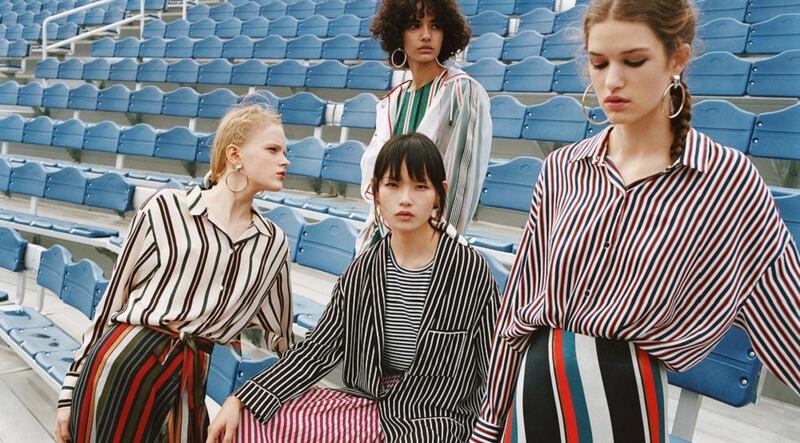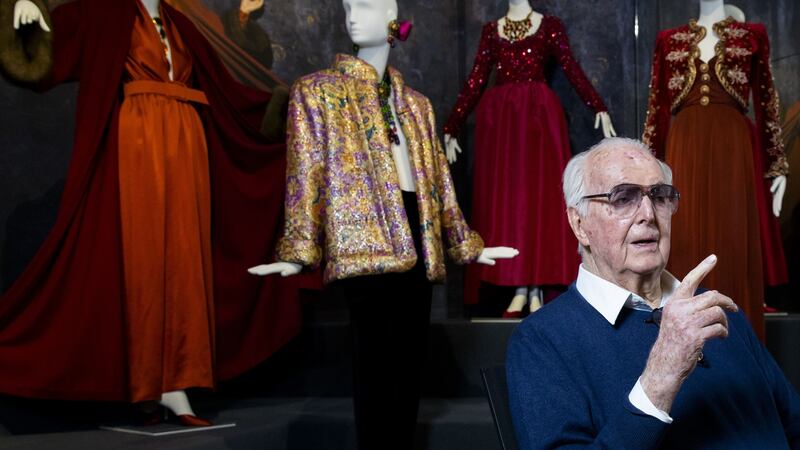
The Business of Fashion
Agenda-setting intelligence, analysis and advice for the global fashion community.

Agenda-setting intelligence, analysis and advice for the global fashion community.

Hello BoF Professionals, your exclusive weekly briefing is ready, with members-only analysis and a digest of the week’s top news. Don't forget to download the BoF Professional iPhone app to read this on your phone and get breaking news alerts.
Compagnie Financière Richemont has entered into exclusive talks to sell its long struggling French leather-goods brand Lancel to Italian briefcase maker Piquadro. Richemont declined to comment, but Piquadro said it expected the acquisition to be completed in the first half of 2018.
Richemont does not break out financial performance for Lancel, but analysts say the label, which generates between €100 million and €150 million in annual sales, could be losing as much as €40 million per year. Lancel is well known in Japan, but lacks brand awareness in key markets like the US and China and has struggled to justify pricing that seems overambitious. It's no wonder the company has been up for sale for some time.
The arrival of a buyer is therefore a positive development for Richemont, which struggled to offload the company back in 2013, when private equity firms Change Capital and Lion Capital were among those said to have expressed interest. A disposal now is better late than never and comes in the wake of another fashion divestment last July when Richemont sold fashion label Shanghai Tang to Italian entrepreneur Alessandro Bastagli after 19 years of ownership.
ADVERTISEMENT
But while these moves signal a long overdue housecleaning at Richemont, they will not solve the group's underlying growth challenges. Lancel and Shanghai Tang have only ever accounted for a tiny fraction of Richemont’s overall business, making them more or less immaterial to the company's performance.
Sales at Richemont fell 4 percent to €10.65 billion ($11.58 billion) in fiscal 2017, reflecting slowing growth in the company's core watches and jewellery categories which, together, account for the vast majority of revenue.
What's more, Richemont's "Other" division, which accounts for about 17 percent of total group sales and includes Lancel, as well as fashion brands Chloé, Dunhill and Alaïa, has been struggling for years. While Chloé is performing well, Dunhill only recently returned to sales growth after undergoing intense restructuring.
Dunhill’s heritage as a brand for British gentlemen certainly gives it the long-term potential that comes with a unique positioning, but turning around the troubled label — rooted in men’s formalwear amid a fast-growing menswear market that is increasingly becoming more casual — has proved a tough task. And while the brand has cultural significance in the UK and a following in Asia, it has limited desirability and awareness in the US and continental Europe.
Then there's Alaïa, which accounts for only a minuscule fraction of group sales and faces an uncertain future following the death of founder Azzedine Alaïa last November and the label's subsequent decision not to appoint a new designer, choosing instead to mine Mr Alaïa's archives for the foreseeable future.
But there is a bright spot. Richemont's fashion strategy includes a renewed focus on digital. After a failure to forcefully embrace e-commerce even after it acquired the Net-a-Porter Group in 2010, the conglomerate made a surprise bid in January to buy the roughly 51 percent of digital luxury giant Yoox Net-a-Porter that it doesn't already own. "With this new step, we intend to strengthen Richemont's presence and focus on the digital channel, which is becoming critically important in meeting luxury consumers' needs," said Richemont chairman Johan Rupert at the time of the bid. On Thursday, the group announced that Italian market watchdog Consob had approved the bid.
But Richemont could also further extend a prized asset like Cartier, best known for its jewellery and watches, into soft luxury categories like leather goods. According to a recent report by HSBC, entitled "China Deluxe: Anatomy of the future luxury consumer," Louis Vuitton is the country's most coveted luxury brand in footwear, despite only more recently expanding into the category. Similarly, Chanel placed second in jewellery, not its traditional forte. According to HSBC, this suggests that brand equity supersedes category, making a Cartier play for a stronger presence in fashion categories like handbags more savvy than it sounds.
THE NEWS IN BRIEF
ADVERTISEMENT
BUSINESS AND THE ECONOMY

Zara 'TRF' Spring/Summer 2018 campaign | Source: Zara
Inditex reports slowdown in sales, weaker profitability. Gross margin narrowed to 56.3 percent in the year through January, while like-for-like revenue gained 5 percent in the second half, the slowest pace in three years, showing that the Zara owner isn't immune to the troubles ailing Swedish rival H&M. Online sales, however, surged 41 percent, making up a tenth of total revenue.
H&M sales miss expectations again. Sales excluding VAT fell to 46.2 billion Swedish crowns (£4.04 billion) from 47 billion a year ago, versus expectations of 47.3 billion. In the previous quarter, local-currency sales shrank for the first time in decades. At its first-ever capital markets day in February, H&M failed to convince investors it has a viable strategy to turn around the core H&M brand, which attracted fewer shoppers to its stores.
Tiffany sales rebound at home. The luxury jeweller's same-store sales climbed 4 percent in the Americas, its largest region, in the fourth quarter. Worldwide, same-store sales rose 1 percent, when holding currency constant. Analysts estimated a gain of 2.7 percent. Asia-Pacific also saw gains, while Europe struggled. The firm is looking to rebound from a sales slump under new chief executive officer Alessandro Bogliolo, who was hired last July.
Adidas sales growth picks up. Revenue at the German company jumped 12 percent in the fourth quarter, led by China and North America. The rebound comes after a slowdown in the third quarter, which sparked concerns and weighed on the shares. Revenue will also grow at a double-digit rate this year, at a forecast 10 percent when adjusted for currency swings. The results follow a buyback of as much as €3 billion ($3.7 billion) worth of stock through 2021.
Acne Studios said to be up for sale. Co-founders Jonny Johansson and Mikael Schiller have reportedly been in conversation with Goldman Sachs and are likely to launch a formal sale process after the summer. According to market sources, the Swedish label currently generates over €200 million a year. Turnover doubled between 2013 and 2016. The company could fetch a valuation of €400 million to €500 million in an outright sale — and maybe more if there is competition from multiple bidders.
Versace and Furla go fur-free. Donatella Versace, the artistic director and vice-president of Versace, said that she did not want to kill animals to make fashion and that "it doesn't feel right." The designer joins a growing list of brands that are turning their backs on the fur industry. Furla has also recently committed to using only faux-fur for both menswear and womenswear, starting from its Cruise 2019 collection.
ADVERTISEMENT
PEOPLE

Hubert de Givenchy | Source: Getty
Hubert de Givenchy passes away at 91. The French designer, who passed away last Saturday, was closely associated with actress Audrey Hepburn, a longtime client who enlisted Givenchy to design many of her iconic Hollywood costumes. After more than 30 years in charge, he sold his label to the French luxury-goods group LVMH in 1988 and retired from fashion in 1995. Last March, Clare Waight Keller became the first woman to run the creative side of the Givenchy house when she was named artistic director.
LVMH announces finalists for 2018 prize. Selected from over 1,300 applications and 90 countries, finalists for the fifth annual LVMH prize are A-Cold-Wall by Samuel Ross; Botter by Rushemy Botter and Lisi Herrebrugh; Charles Jeffrey Loverboy by Charles Jeffrey; Doublet by Masayuki Ino; Eckhaus Latta by Zoe Latta and Mike Eckhaus; Kwaidan Editions by Léa Dickely and Hung La; Ludovic de Saint Sernin; Matthew Adams Dolan; and Rokh by Rok Hwang. The winner will be announced on June 6.
Craig Green is Pitti Uomo's next guest designer. The British menswear designer will present his Spring/Summer 2019 collection at the trade show in Florence and consequently not show at London Fashion Week Men's, where he has been a much-lauded fixture since 2013. With prominent names like Burberry and J.W. Anderson now showing their men's collections as part of co-ed shows at London Fashion Week, Green's absence will leave an even bigger hole on the city's men's schedule.
Guillaume Henry exits Nina Ricci. Nina Ricci's creative director Guillaume Henry has left the French fashion house after three years at the creative helm. His final collection for the label was Autumn/Winter 2018. Nina Ricci's in-house studio will design the next collections while it searches for Henry's successor.
Nike brand president resigns amidst reports of workplace misbehaviour in the organisation. Trevor Edwards, once seen as possible CEO successor, is leaving the athletic-apparel giant. The resignation was announced in an internal memo by chief executive Mark Parker that also cited reports Nike had received in recent weeks of "behaviour occurring within our organisation that do not reflect our core values." Reports cited a Nike spokesman saying there were no allegations against Edwards.
MEDIA & TECHNOLOGY
Warby Parker raises another $75 million. Following the latest Series E funding round, the disruptive eyewear company is now valued at $1.75 billion, with a public flotation on the horizon. It now generates north of $250 million in sales annually, according to market sources. Prior to the Series E, the brand had raised a total of $215 million.
Céline launches on 24 Sèvres. The LVMH-owned platform will be the first and only multi-brand e-commerce player to sell Céline online. In December, Céline launched its own e-commerce site in France and has plans to expand into the US later this year, but the brand remains highly scarce online. 24 Sèvres will sell all of Céline's product categories and include items from the Spring/Summer 2018 collection, the last by the recently departed creative director Phoebe Philo, which will be available to purchase on March 13th.
L'Oréal buys beauty tech firm Modiface. L'Oréal will acquire 100 percent of shares in Modiface, which now has more than 70 employees, for an undisclosed sum. The Paris-based cosmetics maker had previously partnered with Modiface for projects including the "Makeup Genius" app, which has been downloaded more than 20 million times. Makeup Genius allows users to turn smartphone cameras into mirrors and virtually try on beauty products.
Stitch Fix falls 6 percent after posting earnings. Shares fell after the personal styling service posted a diluted earnings per share of two cents. However, revenue for the quarter surpassed expectations. The company brought in $295.9 million, 24 percent above last year. Stitch Fix says it now has 2.5 million clients, 31 percent growth from the same period last year.
Alibaba's Jack Ma and Joe Tsai pump $20 million into Rent the Runway. Blue Pool Capital, a financial firm that principally invests the wealth of Alibaba founders Ma and Tsai, has invested $20 million into the women's clothing rental business. The deal is said to value the New York City startup at nearly $800 million.
Instagram names fashion month winners. New data from the video and photo-sharing app reveals the most buzzed about brands and models over the Autumn/Winter 2018 season. Tom Ford was the most buzzed-about show at New York; Burberry took the top spot in London; Gucci topped Milan; and Chanel won Paris. The most buzzed-about models was Kaia Gerber, followed by sisters Gigi and Bella Hadid.
BoF Professional is your competitive advantage in a fast-changing fashion industry. Missed some BoF Professional exclusive features? Click here to browse the archive.
The rental platform saw its stock soar last week after predicting it would hit a key profitability metric this year. A new marketing push and more robust inventory are the key to unlocking elusive growth, CEO Jenn Hyman tells BoF.
Nordstrom, Tod’s and L’Occitane are all pushing for privatisation. Ultimately, their fate will not be determined by whether they are under the scrutiny of public investors.
The company is in talks with potential investors after filing for insolvency in Europe and closing its US stores. Insiders say efforts to restore the brand to its 1980s heyday clashed with its owners’ desire to quickly juice sales in order to attract a buyer.
The humble trainer, once the reserve of football fans, Britpop kids and the odd skateboarder, has become as ubiquitous as battered Converse All Stars in the 00s indie sleaze years.